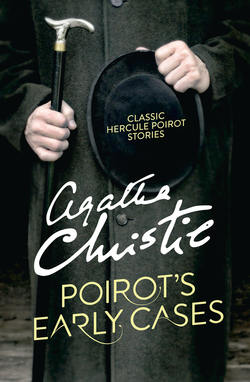Читать книгу Poirot’s Early Cases - Агата Кристи, Agatha Christie, Detection Club The - Страница 6
II
ОглавлениеWe set off at once in a taxi. The new Lord Cronshaw was not at home, but at Japp’s request we were shown into the ‘china room’, where the gems of the collection were kept. Japp looked round him rather helplessly.
‘I don’t see how you’ll ever find the ones you want, monsieur.’
But Poirot had already drawn a chair in front of the mantelpiece and was hopping up upon it like a nimble robin. Above the mirror, on a small shelf to themselves, stood six china figures. Poirot examined them minutely, making a few comments to us as he did so.
‘Les voilà! The old Italian Comedy. Three pairs! Harlequin and Columbine, Pierrot and Pierrette—very dainty in white and green—and Punchinello and Pulcinella in mauve and yellow. Very elaborate, the costume of Punchinello—ruffles and frills, a hump, a high hat. Yes, as I thought, very elaborate.’
He replaced the figures carefully, and jumped down.
Japp looked unsatisfied, but as Poirot had clearly no intention of explaining anything, the detective put the best face he could upon the matter. As we were preparing to leave, the master of the house came in, and Japp performed the necessary introductions.
The sixth Viscount Cronshaw was a man of about fifty, suave in manner, with a handsome, dissolute face. Evidently an elderly roué, with the languid manner of a poseur. I took an instant dislike to him. He greeted us graciously enough, declaring he had heard great accounts of Poirot’s skill, and placing himself at our disposal in every way.
‘The police are doing all they can, I know,’ Poirot said.
‘But I much fear the mystery of my nephew’s death will never be cleared up. The whole thing seems utterly mysterious.’
Poirot was watching him keenly. ‘Your nephew had no enemies that you know of?’
‘None whatever. I am sure of that.’ He paused, and then went on: ‘If there are any questions you would like to ask—’
‘Only one.’ Poirot’s voice was serious. ‘The costumes—they were reproduced exactly from your figurines?’
‘To the smallest detail.’
‘Thank you, milor’. That is all I wanted to be sure of. I wish you good day.’
‘And what next?’ inquired Japp as we hurried down the street. ‘I’ve got to report at the Yard, you know.’
‘Bien! I will not detain you. I have one other little matter to attend to, and then—’
‘Yes?’
‘The case will be complete.’
‘What? You don’t mean it! You know who killed Lord Cronshaw?’
‘Parfaitement.’
‘Who was it? Eustace Beltane?’
‘Ah, mon ami, you know my little weakness! Always I have a desire to keep the threads in my own hands up to the last minute. But have no fear. I will reveal all when the time comes. I want no credit—the affair shall be yours, on the condition that you permit me to play out the dénouement my own way.’
‘That’s fair enough,’ said Japp. ‘That is, if the dénouement ever comes! But I say, you are an oyster, aren’t you?’ Poirot smiled. ‘Well, so long. I’m off to the Yard.’
He strode off down the steet, and Poirot hailed a passing taxi.
‘Where are we going now?’ I asked in lively curiosity.
‘To Chelsea to see the Davidsons.’
He gave the address to the driver.
‘What do you think of the new Lord Cronshaw?’ I asked.
‘What says my good friend Hastings?’
‘I distrust him instinctively.’
‘You think he is the “wicked uncle” of the story-books, eh?’
‘Don’t you?’
‘Me, I think he was most amiable towards us,’ said Poirot noncommittally.
‘Because he had his reasons!’
Poirot looked at me, shook his head sadly, and murmured something that sounded like: ‘No method.’
